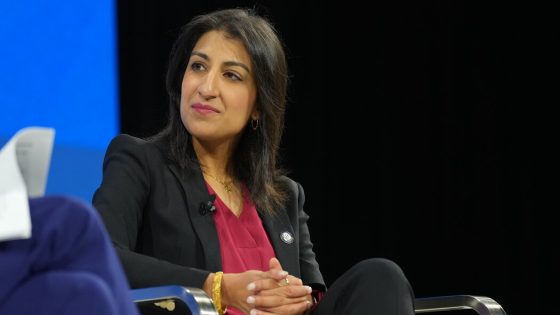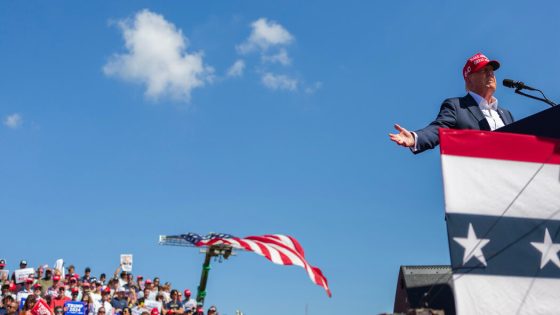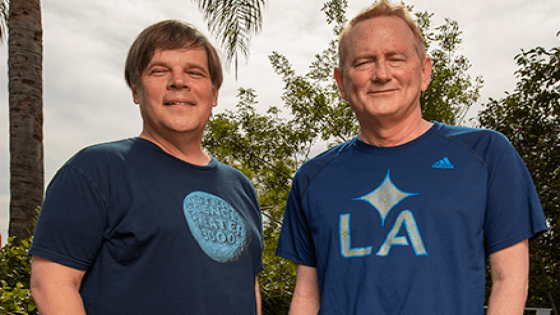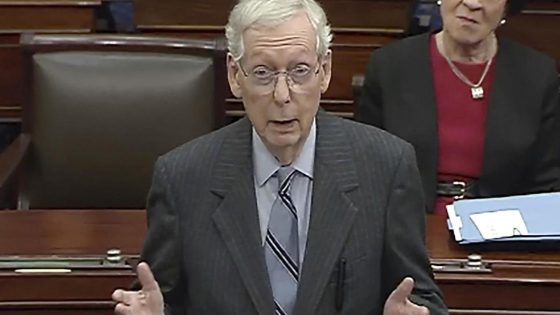The Federal Trade Commission on Monday sued to block Tapestry’s $8.5 billion acquisition of Capri, a blockbuster fashion tie-up that would bring together Coach, Kate Spade, Michael Kors and Versace.
The lawsuit is a rare move by the agency to block a fashion deal, given that the industry does not suffer from a lack of competition. In her nearly three years as chair of the F.T.C., Lina Khan has put a priority on taking on the power of big business in suits across industries. The agency has moved to block the supermarket merger between Kroger and Albertsons, Meta’s acquisition of the virtual reality start-up Within and Microsoft’s bid for the gaming giant Activision.
The results have been mixed: The F.T.C. failed to block Microsoft’s deal and Meta’s acquisition, both of which closed last year.
“With the goal to become a serial acquirer, Tapestry seeks to acquire Capri to further entrench its stronghold in the fashion industry,” Henry Liu, director of the F.T.C.’s Bureau of Competition, said in a statement.
At the center of the F.TC’s concerns are “accessible luxury” accessories — an industry term for the less expensive wares sold by Coach, Kate Spade and Michael Kors. The agency said tens of millions of Americans could end up paying more for these items because the combined company would no longer have the incentive to compete on price.
“This deal threatens to deprive consumers of the competition for affordable handbags, while hourly workers stand to lose the benefits of higher wages and more favorable workplace conditions,” Mr. Liu said.
A classic bag from Michael Kors, a Capri brand, like a Marilyn medium logo tote bag costs $228. Tapestry’s similar Coach Willow tote bag costs $350.
“It’s quite clear to us that they don’t understand how consumers shop today and they don’t understand the dynamics of a marketplace with no barriers to entry, constant influx of new competitors,” Joanne Crevoiserat, the chief executive of Tapestry, said in an interview Monday.
Ms. Crevoiserat added that consumers could shop for bags at different retailers and on numerous websites. “Type in ‘black tote,’ you’ll see thousands of choices and hundreds of brands at any price point,” she said.
She added that Tapestry remained focused on closing the deal this year and was prepared to defend it in court.
Capri said in a separate statement that it also disagreed with the F.T.C.’s move and planned to defend the deal in court. The company said Americans had hundreds of choices of where they could buy handbags.
“The market realities, which the government’s challenge ignores, overwhelmingly demonstrate that this transaction will not limit, reduce or constrain competition,” the statement said.
The fashion deal, announced in August, would create an American luxury conglomerate intended to compete with European powerhouses like Louis Vuitton’s parent, LVMH, and Kering, the owner of Gucci. But it would pale in comparison by size: Based on 2023 figures, Capri, which owns Versace and Jimmy Choo in addition to Michael Kors, and Tapestry, the owner of Kate Spade and Stuart Weitzman as well as Coach, together have about $12 billion in revenue. LVMH had revenue of 86.2 billion euros, or about $92.2 billion, last year.
The luxury market has experienced slower sales after benefiting from a pandemic boost from shoppers spending on handbags and other accessories. In February, Capri said its quarterly revenue had fallen 5.6 percent. That same month, Tapestry said it had delivered record revenue for the quarter after a strong holiday.
The F.T.C. has been scrutinizing the deal for months, even as regulators in the European Union and Japan approved it. Traders have increasingly bet against the likelihood of its going through: Shares of Capri have fallen 25 percent this year, while Tapestry’s have gained 6 percent. (Typically, shares of the target of a takeover gain while shares of the buyer fall.)
The F.T.C. said that, based on documents produced by Tapestry, its acquisition of Capri was not likely to be its last, and that this deal could give it leverage for future deals.
“This is the deal that makes sense for Tapestry,” Ms. Crevoiserat said. “This is the transaction that we’re focused on.”
Source Agencies




